More mature
Su Hao, a professor of Asia-Pacific studies at China Foreign Affairs University, said China's more coordinated security policy and its willingness to interact with the rest of the world has contributed to a reduction in misunderstandings and the easing of tensions.
Su was speaking about Beijing's announcement of a State Security Committee in November, as well as increasing military drills between China and foreign militaries, "including both traditional partners and the so-called strategic competitors".
In November alone, China conducted joint military exercises with India, the US and Indonesia. The drill involving China and India was the pair's first in five years.
"The showcasing of the two sides' military strength helps to dispel Washington's concerns about China and to smooth relations," said Su.
The Chinese side, for example, properly handled a reported "near-miss" between warships of China and the US in the South China Sea in December, he said.
The US Pacific Fleet said a US guided-missile cruiser was forced to take evasive action to avoid a collision with a Chinese warship that was escorting China's aircraft carrier the Liaoning in the South China Sea on Dec 5.
The Chinese military later gave a toned-down response, stressing that the Chinese vessel was conducting "normal patrols", and said there were "good opportunities" for developing Sino-US military ties.
Chinese media reported that despite the incident, the PLA navy's East Sea Fleet is preparing to participate in the 2014 Rim of the Pacific naval exercise in Hawaii. It will be the first time China has joined the world's largest multinational maritime exercise, which is led by the US.
China has also boosted military diplomacy with regional neighbors, Su added, citing China's coordination with some Southeast Asian countries over their overlapping territorial claims in the South China Sea.
In 2013, Defense Minister Chang Wanquan visited a long list of countries, including the US, Canada, India, Indonesia and Brunei.
During the ASEAN Defense Ministers' Meeting Plus in August, Chang explained China's stance on the South China Sea issue.
Setting up a State Security Committee would also help the world to more easily grasp the country's security policies, with domestic problems like Taiwan and border stability topping its agenda, said Su.
But Robert Daly, director of the Kissinger Institute on China and the United States at the Wilson Center, said most foreign observers seem to be withholding judgment on the scope, functions and power of the State Security Committee, pending announcement of its membership.
 |  |

 In photos: Ten 'tuhao' devices in 2013
In photos: Ten 'tuhao' devices in 2013 Two Chinese academicians win nation's top science award
Two Chinese academicians win nation's top science award Photo story: A sommelier's life
Photo story: A sommelier's life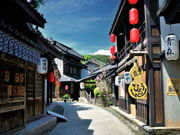 Film and TV studios worth visiting in China
Film and TV studios worth visiting in China Heart-warming Laba porridge
Heart-warming Laba porridge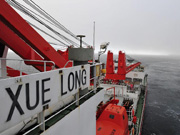 Gallery: China's trapped icebreaker makes successful escape
Gallery: China's trapped icebreaker makes successful escape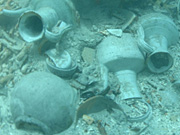 Archaeological study in the South China Sea: exploring the 'Maritime Silk Road'
Archaeological study in the South China Sea: exploring the 'Maritime Silk Road'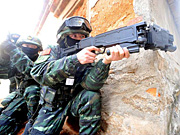 Armed Police hold anti-terrorism drill in SE China's Xiamen
Armed Police hold anti-terrorism drill in SE China's Xiamen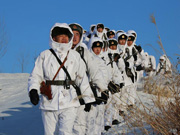 'Red Army' division conducts winter training in N China
'Red Army' division conducts winter training in N China  Harbin Int'l Ice and Snow Festival opens
Harbin Int'l Ice and Snow Festival opens Rime scenery in Mount Huangshan
Rime scenery in Mount Huangshan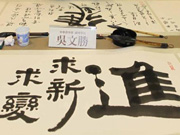 'Jin' named the word of the year by cross-strait netizens
'Jin' named the word of the year by cross-strait netizens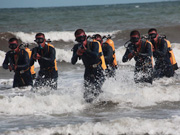 PLA elite units unveiled
PLA elite units unveiled 
Day|Week|Month